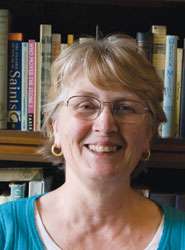Walking, talking and memory

(PhysOrg.com) -- How easy is it to walk, talk and remember what was said? Dr Dee Way studied how actors learn a script and whether walking affects their memory performance.
How easy is it to walk, talk and remember what was said? Dr Dee Way, a keen amateur actor and mature student in Experimental Psychology who, at 62, has just been awarded a PhD, studied how actors learn a script and whether walking affects their memory performance.
Memory for prose is an everyday event; in fact, verbal memory is so much a part of life that it is often taken for granted. The efficiency of verbal memory, however, can vary widely from person to person. Since professional actors specialise in accurate verbatim learning of prose, Way wondered whether they might provide insight into the operation of verbal memory.
Her research first took a detailed record of one professional actor’s method for learning a part, much of which was found to relate to maintaining a high level of personal relaxation, working in a calm, quiet environment, making use of personal links to help recall of any unusual items mentioned, and replacing key words with nonsense ideas to emphasise the correct wording. He also undertook intense sessions of examining the language of the text, such as asking why each word was used, why the language was phrased as it was, what the relation-ships between the play’s characters were, and the mood, character and temperament of the role being studied.
These experiments showed that for the professional actors, memory performance was the same whether they were walking or were seated.
Another technique was his extensive use of movement during learning, particularly the use of walking which he employed to characterise the mood of the text and the speed of thought. A series of experiments was therefore devised to test the effect of walking on verbal memory.
In this experiment Way tested professional actors at the London Actor Centre, as well as amateur actors, university students and trainee actors in Bristol, to see if there was any difference in their learning abilities. These experiments showed that for the professional actors, memory performance was the same whether they were walking or were seated. Furthermore, their memory performance was no better than trainee actors or male students. Interestingly, however, she found that female students with no acting experience found it significantly harder to remember material while walking.
This unexpected result could be accounted for by the fact that there are physical differences in the nerve pathways within male and female brains. Recent evidence suggests that mental processing is more widespread within the brain in females and restricted to more distinct areas in males. Thus, combining activity with memory is more likely to be two distinct processes in men, but to overlap in women. The professional women actors, however, learnt prose just as easily as their male counterparts, suggesting that experience may be an important factor in their learning ability, although further research is needed to confirm this.
Provided by University of Bristol (news : web)
















